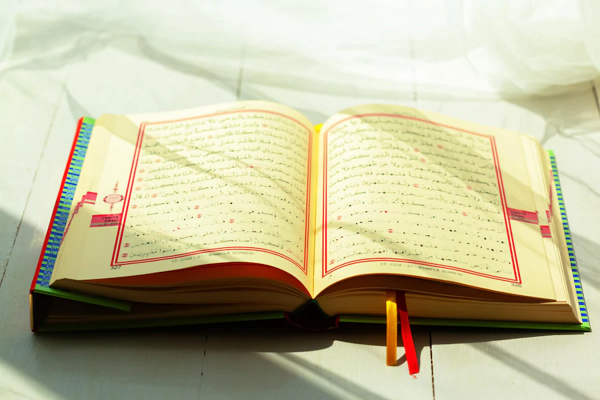Surah Al-Ahzab; Quran’s Equal View on Men, Women

Surah Al-Ahzab is the 33rd chapter of the Holy Quran. Having a total of 73 verses, the Surah is situated in the Juzes 21 and 22 of the Holy Book. A Madani Surah, it is the 90th Surah that was revealed to Prophet Muhammad (PBUH).
The name has been derived from Ghazwat al-Ahzab (Battle of the Confederates) which has been referred to in verses 9-25. The word “Ahzab” has been mentioned in verses 20 and 22 and points to infidel groups who had built an allegiance to confront Islam and Prophet Muhammad (PBUH), starting a namesake war.
The incidents mentioned in the Surah happened between years 2 to 5 of the Hijri calendar. At the time, the Islamic government in Medina was at its early stages and Muslims were going through hard conditions as infidels, Jews, and hypocrites were harassing them. Meanwhile, Prophet Muhammad (PBUH) was striving for the consolidation of social rules and fighting traditions of the Age of Ignorance on the one hand, and resisting against enemies’ efforts on the other.
The Surah contains information about the position of the Prophet’s wives while also referring to what was expected from them such as ignoring worldly affairs, competing with others in obeying God’s commands, refraining from sins, and not going out of the house.
Among other points of the Surah is that it refers to the similarity between men and women in obtaining good traits. Verse 35 of the Surah reads: “For men and women who have surrendered believing men and women; obedient men and women; truthful men and women, patient men and women, humble men and women, men and women who give charity, men and women who fast, men and women who guard their privates, men and women who remember Allah in abundance, for them Allah has prepared forgiveness and a mighty wage.”
This verse names 10 lofty traits for all men and women. Some of these features are related to belief and some others to ethics; some of them are Wajib (compulsory) and some others are Mustahabb (recommended). This shows that men and women are identical in achieving all these traits. This verse is an example of Islam’s equal view toward men and women.
 Most Commented
Most Commented 

